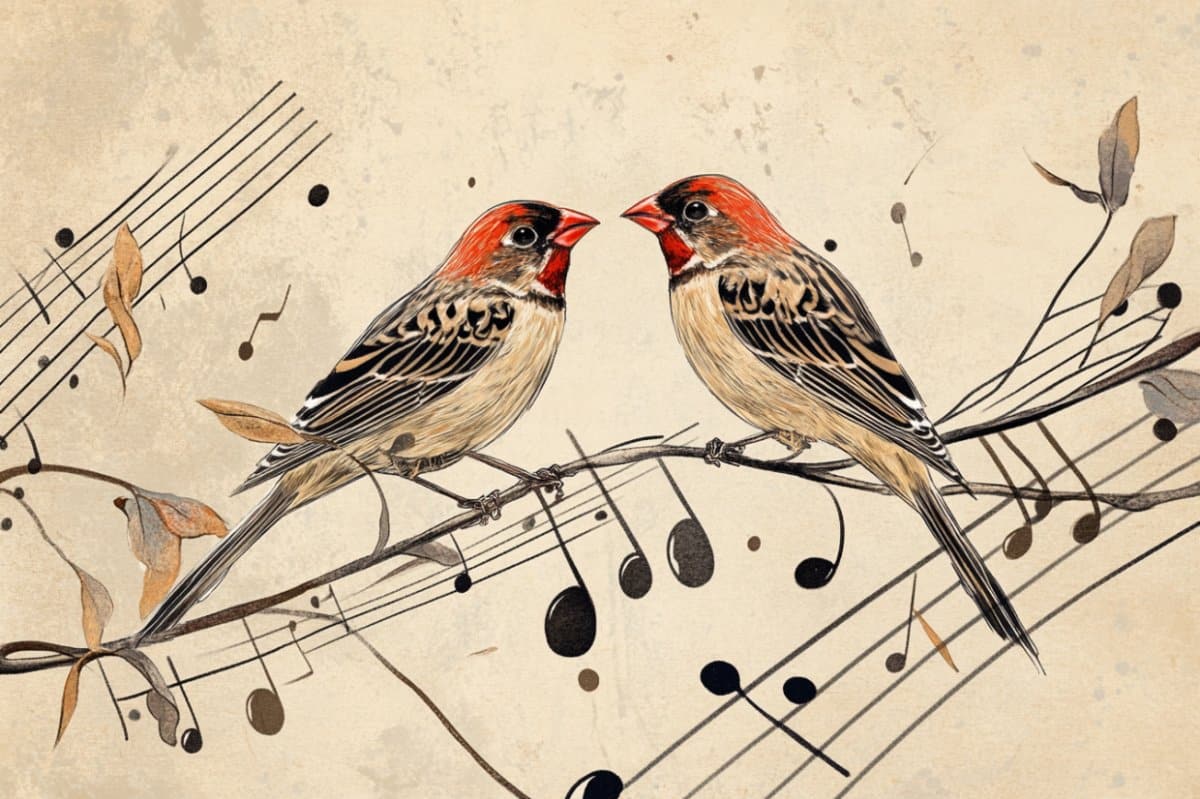Summary: Young zebra finches learn their birdsong by observing and imitating adult “tutor” birds, but they don’t follow just anyone. A new study shows that juvenile finches prefer tutors who sing longer but less often, suggesting social cues guide their choices.
When researchers removed the amygdala, a brain region tied to emotion, the young birds still imitated songs, but chose tutors more randomly. This indicates that while the amygdala isn’t essential for song learning itself, it helps young birds selectively choose whom to learn from.
Key Facts:
- Tutor Preference: Juvenile finches favor adult tutors who sing longer but less frequently.
- Amygdala Role: Removing the amygdala didn’t affect imitation but reduced social selectivity.
- Social Learning: The amygdala may influence imitative behavior by guiding social attention.
Source: SfN
How does a bird learn its birdsong?
Tomoko Fujii and Masashi Tanaka, from Waseda University, explored what drives a zebra finch to approach and imitate other zebra finches to learn its birdsong in a new Journal of Neuroscience paper.

The researchers explored song learning in young male zebra finches as they interacted with “tutor” adults that already knew their birdsongs. Young zebra finches preferably approached tutors that sang longer but less frequently.
Fujii and Tanaka next probed the role of a brain region traditionally linked to emotions in mammals (the amygdala) in this song-learning process.
To examine the role of the amygdala, the researchers removed it from the young zebra finches. While loss of this brain region did not hinder song imitation, tutor selection became more unpredictable as birds pursued tutors less discerningly.
Tracing neural connections in the zebra finch brain further confirmed that the amygdala doesn’t necessarily drive song control and learning, but may play a role in socially selective, imitative behavior, according to the authors.
About this social learning and neuroscience research news
Author: SfN Media
Source: SfN
Contact: SfN Media – SfN
Image: The image is credited to Neuroscience News
Original Research: Closed access.
“Amygdala Regulates Social Motivation for Selective Vocal Imitation in Zebra Finches” by Tomoko Fujii et al. Journal of Neuroscience
Abstract
Amygdala Regulates Social Motivation for Selective Vocal Imitation in Zebra Finches
Imitation plays a key role in the acquisition of speech and cultural behaviors.
Studies suggest that social interaction facilitates imitative learning, indicating that neural circuits involved in social behaviors can also influence the process of imitation.
Vocal imitation in juvenile songbirds serves as a valuable model to investigate this idea.
Here, we explore the mechanisms of tutor-pupil social interaction and selective song learning in male zebra finches, with a particular focus on the amygdala, which can regulate social behaviors via its processing of values and emotions in mammals.
When sequentially exposed to two tutors, normal pupils selectively learned song from the tutor who sang longer but less frequently. When hearing songs, pupils preferentially approached the selected tutor.
Excitotoxic lesions of the amygdala increased pupils’ social motivation toward tutors yet diminished their song-responsive approach, especially to the selected tutor.
Whereas the pupils with amygdala lesions retained their ability to imitate song, the tutor selection became more unpredictable with diminished preference for a specific tutor.
Neuronal tracing confirmed that the zebra finch amygdala is connected to the circuits involved in social functions but lacks direct connections to those critical for song control and learning.
These results suggest that the amygdala regulates social motivation and tutor selection in juvenile zebra finches, highlighting its role in imitative learning.






